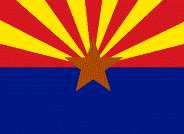DO YOU WANT TO KNOW SOMETHING THAT WILL MAKE EVERYONE EVEN HOTTER ???
When the ambient air temp gets hot it causes materials to expand.
When the air temp gets cold, materials contract.
All materials, with a few exceptions that vary a bit like water that has properties of gas, liquid and solids, expand and contract.
When it is hot, atoms move faster in the molecules of the material, causing the molecules to move faster, causing expansion.
Being constantly aware of the expansion and contraction properties of materials is crucial in the heavy construction business, especially in AZ where we have temp differentials of over 100 degrees F.
OK, HERE IS THE PART THAT WILL GET YOU HOT !!!
How does your gasoline pump know how many gallons of gas is being pumped into your vehicle's tank ?
I believe that these pumps are state regulated and monitored by state agencies.
Pumps in AZ are set at 60 degrees F.
I think that is also the nationwide standard.
In other words, the volume of gasoline is calculated in gallons as if it were an ambient air temp of 60 degrees.
So in the summertime, the gasoline molecules expand when the temps are very high. The higher the temp, the more the gasoline molecules expand.
The pump thinks it is 60 degrees F.
So you are getting less gas per gallon because the gasoline is expanded due to the high temps.
You still get a gallon, but it is an expanded gallon with less actual gasoline.
Most experts agree that we pay an extra dollar per gallon when fueling during high temps !
NOW DON'T THAT MAKE YOU HOT ???
*** Please refer any technical molecular physics questions to Loyal Soldier***
.








 Reply With Quote
Reply With Quote

 ....
.... ....
....


